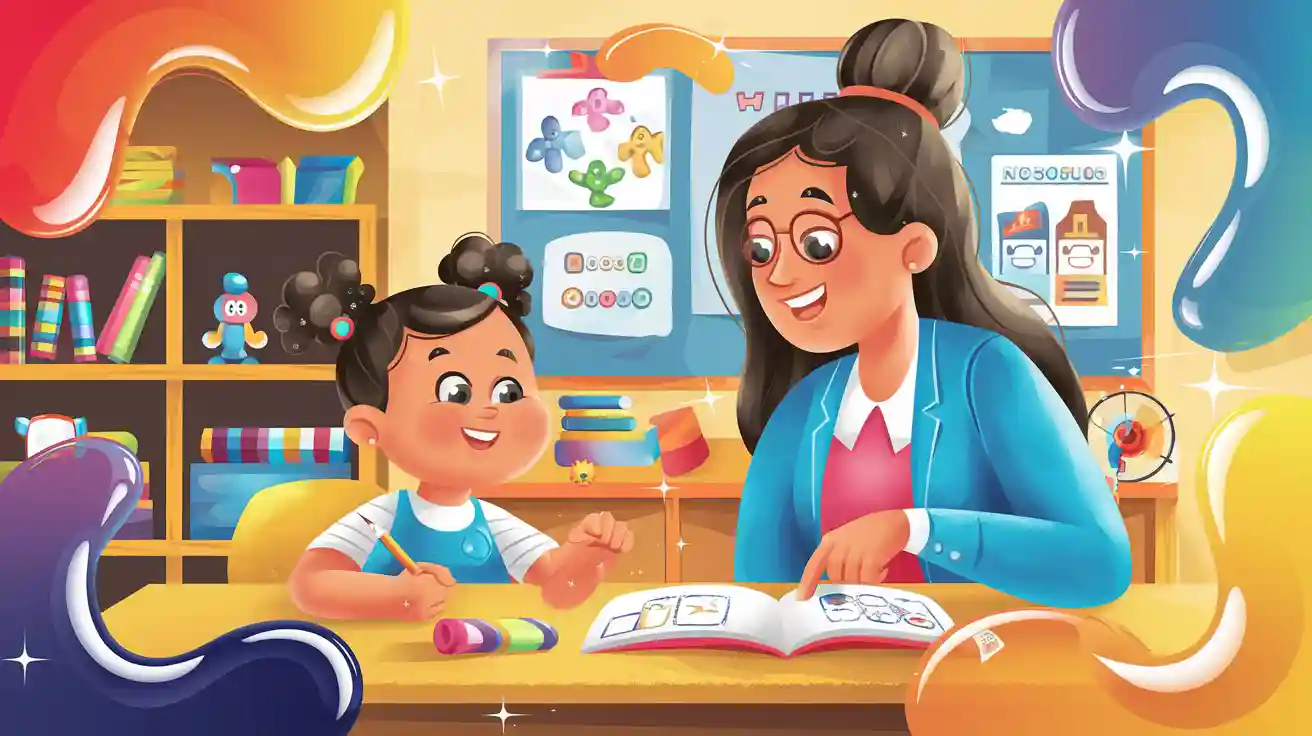
Special education in Singapore empowers students with special needs by addressing their unique challenges through personalized approaches. Educators use evidence-based practices to enhance academic performance, foster social integration, and promote independence. Continuous monitoring ensures that teaching strategies remain effective, adapting to each child’s progress. This dynamic system not only supports learning but also builds confidence and essential life skills.
With access to specialized resources and tailored interventions, children experience meaningful growth, preparing them for a brighter future.
Individualized Learning in Special Education in Singapore
Tailored Curriculum
Special education in Singapore emphasizes the importance of a tailored curriculum to meet the unique needs of each student. You will find that this approach ensures that lessons align with your child’s abilities and learning pace. Educators design personalized plans that focus on specific strengths and challenges, helping students achieve their full potential.
For example, children with autism may benefit from Applied Behavior Analysis (ABA), which uses structured techniques to improve communication and social skills. Similarly, students with dyslexia often thrive with Orton-Gillingham-based methods, which break down reading and writing into manageable steps.
Research highlights the effectiveness of these individualized strategies. Evidence-based practices (EBPs) show that tailored approaches lead to better academic performance, improved behavior, and enhanced social outcomes. This means your child can experience meaningful progress in both their studies and personal development. A customized curriculum not only addresses academic goals but also incorporates life skills, preparing students for future independence.
Focused Attention
In special needs education, focused attention plays a critical role in fostering growth. Smaller class sizes in special education settings allow teachers to dedicate more time to each student. This ensures that your child receives the guidance they need to overcome challenges and build confidence. Teachers closely monitor progress and adjust teaching methods to suit individual learning styles. Such a hands-on approach helps students stay engaged and motivated.
You will also notice that focused attention extends beyond academics. Educators work on developing social and emotional skills, which are essential for navigating daily life. By creating a supportive environment, teachers help students feel valued and understood.
This personalized attention not only boosts self-esteem but also encourages a love for learning.
Specialized Resources for Special Needs Education
Trained Educators and Therapists
Special needs education in Singapore thrives on the expertise of trained educators and therapists. These professionals play a pivotal role in identifying and supporting children with special educational needs. Their specialized training equips them to assess individual challenges and implement effective strategies tailored to each child’s needs.
For instance, speech therapists design communication plans for children with language delays, while Applied Behavior Analysis (ABA) therapists focus on behavioral interventions for students on the autism spectrum.
Collaboration between educators and therapists enhances the Individualized Education Plan (IEP) process. This multidisciplinary approach ensures that every aspect of a child’s development is addressed. Specialists such as psychologists contribute valuable insights into emotional well-being, while occupational therapists focus on improving motor skills. This teamwork creates a holistic support system that fosters academic, social, and emotional growth.
Research underscores the importance of professional development in special education. Studies highlight that adopting evidence-based practices (EBPs) leads to improved outcomes for students with disabilities. The table below summarizes key findings:
|
Source |
Key Findings |
|---|---|
|
Implementing Evidence-Based Practices in Special Education |
Adoption of EBPs leads to effective educational experiences and improved outcomes for students with disabilities. |
|
What Is the Role of Research in Special Education? |
Emphasizes the need for professional development in proven teaching methods to improve special education programs. |
|
Evidence-Based Practices in Special Education |
Implementation of EBPs leads to academic success, improved behavior, and better social outcomes for students with disabilities. |
Assistive Technologies
Assistive technologies (AT) have revolutionized special needs education by providing tools that enhance learning and participation. These technologies cater to diverse needs, from communication devices for non-verbal students to software that supports reading and writing.
For example, text-to-speech programs help children with dyslexia process written information more effectively, while virtual manipulatives assist students in solving mathematical problems.
Teachers in Singapore integrate AT based on the specific requirements of their students. This personalized approach ensures that each child benefits from the technology most suited to their needs. Studies from the United States and Ireland highlight the positive impact of AT on student participation and well-being.
The table below provides examples of its effectiveness:
|
Evidence Description |
Location |
|---|---|
|
The AT (virtual manipulator) assisted students to solve mathematical problems. |
USA |
|
Teachers use AT according to the needs of their students. |
USA |
|
The importance of AT for improving student participation and well-being is highlighted. |
Ireland |
Incorporating assistive technologies into classrooms not only improves academic performance but also boosts confidence and independence. These tools empower students to overcome challenges, enabling them to thrive in both educational and social settings.
Inclusive Education Opportunities in Singapore
Integration with Mainstream Schools
Inclusive education in Singapore promotes the integration of students with special needs into mainstream schools. This approach aims to create a balanced educational environment where all students can learn and grow together. You may notice that this integration fosters mutual understanding and respect among peers, contributing to an inclusive society. However, research shows mixed outcomes regarding the effectiveness of this model.
Some studies reveal that students in inclusive settings do not consistently achieve better academic, psychological, or social outcomes compared to those in specialized classrooms. Factors such as the severity of disabilities and teaching methods significantly influence these results.
Despite these challenges, many special education schools in Singapore collaborate with mainstream schools to provide tailored support. For instance, resource teachers and therapists work closely with classroom educators to ensure that students with special needs receive the assistance they require. This partnership helps bridge the gap between specialized and mainstream education, offering students a chance to thrive in a diverse learning environment.
Social and Emotional Development
Inclusive education also plays a vital role in enhancing the social and emotional development of students with special needs. When integrated into mainstream schools, these students have opportunities to interact with their peers, building essential communication and interpersonal skills.
Studies involving over 7,000 students highlight varied outcomes in this area. While some children flourish in inclusive settings, others face difficulties adapting to the demands of regular classrooms.
To address these challenges, schools in Singapore implement strategies that prioritize emotional well-being. For example, buddy systems and peer mentoring programs encourage positive interactions and foster a sense of belonging. These initiatives not only benefit students with special needs but also promote empathy and collaboration among all learners. By focusing on social and emotional growth, inclusive education helps prepare students for meaningful participation in an inclusive society.
Family Support in Special Needs Education
Counseling and Guidance
Navigating the complexities of special needs education can feel overwhelming, but counseling and guidance services offer essential support for families. These services help you understand your child’s unique challenges and strengths, empowering you to make informed decisions about their education.
Counselors work closely with families to address emotional concerns, provide coping strategies, and guide you through the special education system.
You’ll find that many special education schools in Singapore prioritize family involvement by offering tailored counseling sessions. These sessions focus on fostering collaboration between parents and educators, ensuring that your child’s Individualized Education Plan (IEP) aligns with their needs.
Resources like the Parent Toolkit and the Center for Family Engagement provide valuable tools to help you navigate the system and advocate effectively for your child.
Workshops and Training
Workshops and training programs equip you with practical skills to support your child’s development. These sessions cover a wide range of topics, including effective communication strategies, behavior management techniques, and understanding assistive technologies. By attending these programs, you gain insights into how to create a supportive home environment that complements your child’s learning at school.
Special education schools often collaborate with organizations to host workshops tailored to the needs of families. For example, Parent Training and Information Centers (PTIs) offer sessions that teach you how to advocate for your child and access necessary resources.
These programs not only enhance your knowledge but also build your confidence in supporting your child’s journey through special needs education.
Community Support Networks
Community support networks play a vital role in ensuring long-term success for students with special needs. These networks connect you with other families, professionals, and organizations, creating a strong safety net for your child. Transition coordinators often help families establish these networks by developing timelines, defining future goals, and involving you in the planning process.
In Singapore, resource directories and community resource maps are widely available to help you identify services that meet your child’s needs. Early planning for adulthood, starting before the age of 16, ensures a smoother transition to post-graduation life. Events like resource fairs and agency meetings provide opportunities to connect with programs and services that support your child’s growth. These networks foster collaboration and ensure that you and your child have access to the resources needed for success.
Long-Term Benefits of Special Education in Singapore
Preparing for Independence
Special education in Singapore equips students with the tools they need to achieve independence. Programs focus on developing essential life skills, such as communication, problem-solving, and self-care. These skills empower students to navigate daily challenges with confidence.
For example, interventions like the Picture Exchange Communication System (PECS) and task analysis help students build communication abilities and manage tasks step by step. These methods are supported by evidence-based practices (EBPs), which have been proven to enhance both academic and social skills.
You will notice that special education schools emphasize practical learning experiences. Activities like role-playing and community-based instruction teach students how to interact in real-world settings. These experiences prepare them for situations such as grocery shopping, using public transportation, or managing personal finances. This hands-on approach ensures that students gain the confidence and competence needed to live more independently.
Future Success
Special education in Singapore lays a strong foundation for future success. With the proper support, students can excel academically and socially, opening doors to meaningful opportunities. Statistics show that 85% of students in special education are capable of achieving on grade level. This demonstrates that, with tailored interventions, students can overcome challenges and reach their full potential.
Special education schools also focus on career readiness. Programs often include vocational training, internships, and skill-building workshops. These initiatives help students explore their interests and prepare for employment. For instance, students may learn skills like computer literacy, customer service, or craftsmanship, depending on their strengths and goals. This targeted preparation increases their chances of securing fulfilling jobs and contributing to society.
The long-term benefits of special education extend beyond academics. By fostering independence and preparing students for the workforce, these programs ensure that individuals with special needs can lead productive and rewarding lives.
Special education in Singapore offers a well-rounded system designed to meet the unique needs of children with special needs. You benefit from individualized learning plans, access to specialized resources, and inclusive education opportunities that foster growth and development.
Families also receive essential support, ensuring they can confidently guide their children toward success.
-
During the 2020 circuit breaker, the Ministry of Education (MOE) loaned 12,500 laptops and tablets to students in need.
-
About 47,000 primary and secondary students received meal subsidies through School Smartcard top-ups, addressing inequities faced by students, including those with special needs.
The focus on evidence-based practices ensures that teaching strategies remain effective and adaptable. This commitment leads to better academic outcomes, improved social integration, and greater independence for students. Special education in Singapore not only transforms individual lives but also contributes to a more inclusive and supportive community.
